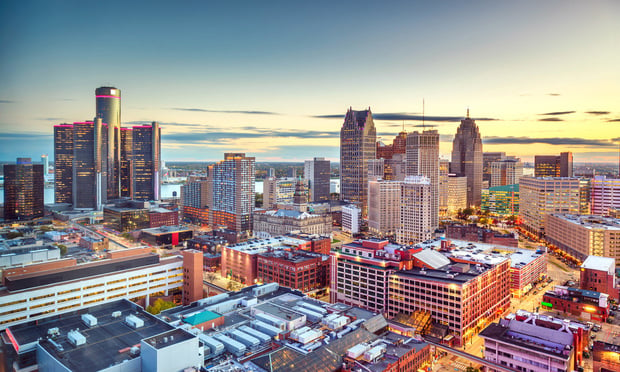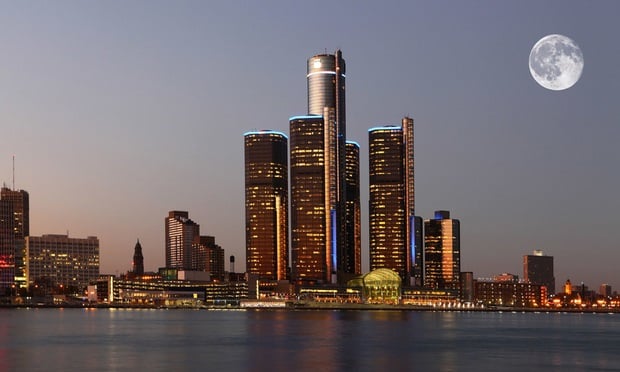It can be said that Michigan is suffering with land pollution, according to figures from the report. There are many hundreds of contaminated former industrial and commercial sites, 235 hazardous waste treatment, storage and disposal sites, and about 7,000 sites with leaking underground storage tanks.
Also, Michigan continues to import garbage from other states and Canada, something it cannot stop because of the inability of the state, due to federal interstate commerce rules, to restrict the import of waste from outside the state.
There have been many successes in cleanup, however, says MDEQ director Russell Harding.
Particularly of notice is returning contaminated land back to the tax rolls for communities, he says.
"The report highlights successes as the creation of a nationally recognized Brownfield Redeveloment Program," Harding says.
Key to the program has been the new cleanup law enacted in 1995. One of the goals was to promote redevelopment, but no developer wanted to buy a brownfield with the possibility that the new owner could incur liability.
Much land in Michigan has sat vacant because former owners and polluters disappeared, and no entity wanted to claim responsibility, and the financial penalty, to clean up.
However, the law in 1995 said that the buyer of the property will not be liable for previous contamination. Money was made available through the Clean Michigan Initiative Fund to provide state money to help developers clean up brownfields and communities began Brownfield Redevelopment Authorities, which can provide future tax incentives to a company that cleans up a site for redevelopment.
In 2002, communities have begun to catch on to the benefits of brownfield redevelopment. Many cities have started authorities or research into how to clean up the former auto plant, a landfill or even the corner gasoline station.
Since 1996, the MDEQ has periodically surveyed 33 communities to determine how effective the 1995 cleanup program changes have changed redevelopment of property.
The communities answered that investment in brownfield properties has increased steadily, from about $10 million in 1996 to more than $4 billion in 2002, with almost 12,000 new jobs created from new businesses occupying the formerly vacant property.
The state has further to go to become a greener state, according to the report. Harding says another challenge being spoken by many currently running for office in November is the reduction in out-of-state being imported into Michigan. He said he encourages private citizens to get involved in cleaning up the state.
"Only by working together and including all stakeholders in Michigan's environmental protection will we be able to develop solutions to deal with ongoing and emerging issues that threaten Michigan's environmental well-being," he says.
© 2025 ALM Global, LLC, All Rights Reserved. Request academic re-use from www.copyright.com. All other uses, submit a request to [email protected]. For more information visit Asset & Logo Licensing.






